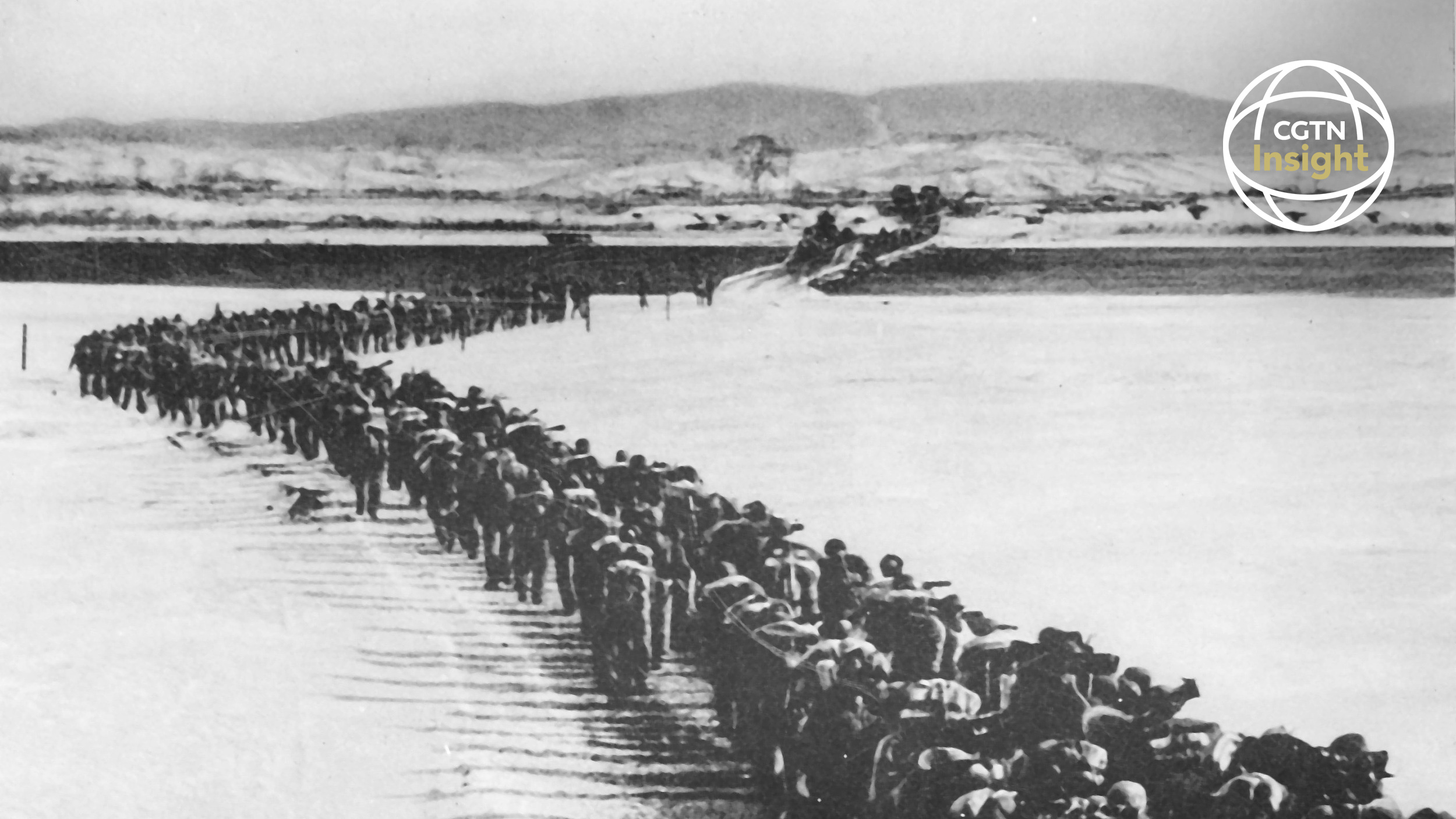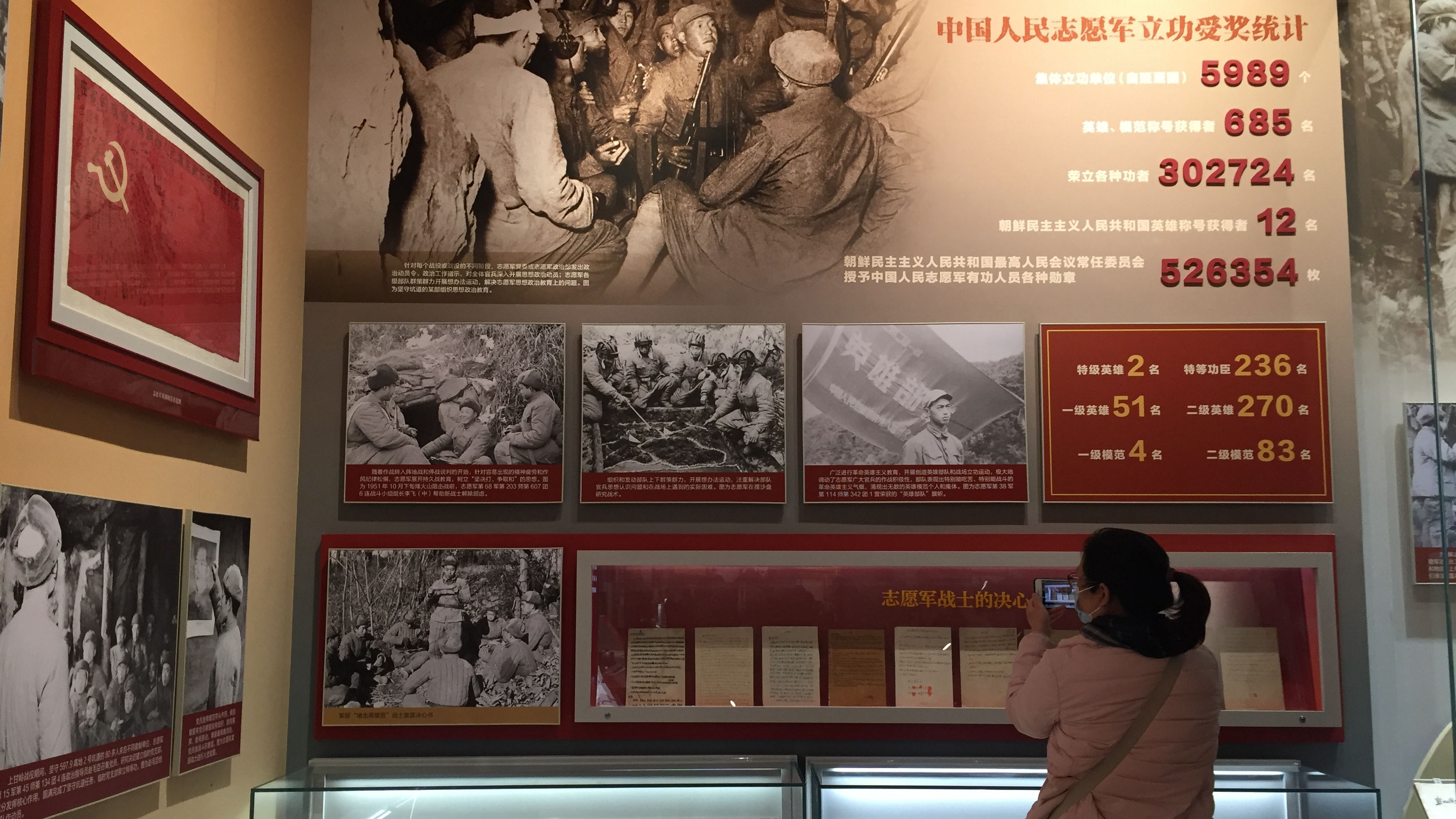
After the U.S.-led UN forces landed at Inchon in 1950, then Chinese Premier Zhou Enlai issued a warning: "The Chinese people enthusiastically love peace, but in order to defend peace they never have been and never will be afraid to oppose an aggressive war."
Perhaps history truly likes to repeat itself. As it commemorates the 70th anniversary of the War to Resist U.S. Aggression and Aid Korea, China again finds itself in a precarious world with adversaries bearing down upon it, challenging its national interest and integrity. And like seven decades ago, China's plea for peaceful dialogue and warnings about the danger of aggression seems to be brushed aside by the opposing side whose only focus appears to be enforcing conformity – disregarding each party's individual characters and way of life.
China-U.S. relationship today hasn't descended into open military confrontation, not yet. But the U.S., despite all the progression in technology and modernization, has taken up the mental of the Cold War again by putting ideological differences between the two countries above their national interests.
According to Reuters, two days before China's commemoration ceremony took place, U.S. National Security Advisor Robert O'Brien told British and U.S. military and intelligence officials that the Communist Party of China (CPC) seeks "dominance in all domains and sectors" and "plans to monopolize every industry that matters to the 21st century." U.S. politicians and media are branding China's commemoration as a way to hype up nationalism within China against the U.S. and insinuate (or outright declaration in O'Brien's case) that the CPC seeks to replace the U.S. as the next hegemon.
Chinese President Xi Jinping during his speech at the commemoration ceremony emphasized that China never seeks hegemony or expansion and opposes hegemonism and power politics. This isn't the first time he has expressed this commitment. A simple search would land people with videos and news about Xi delivering this message throughout his tenure, most recently at the General Debate of the 75th session of the United Nations General Assembly.

An exhibition to commemorate the 70th anniversary of the Chinese People's Volunteer (CPV) Army entering the DPRK to join the War to Resist U.S. Aggression and Aid Korea is held at the Military Museum of the Chinese People's Revolution in Beijing, October 19, 2020. /CGTN
An exhibition to commemorate the 70th anniversary of the Chinese People's Volunteer (CPV) Army entering the DPRK to join the War to Resist U.S. Aggression and Aid Korea is held at the Military Museum of the Chinese People's Revolution in Beijing, October 19, 2020. /CGTN
Hegemonism doesn't work. When U.S. tried to expand its dominion across the world 70 years ago, war erupted on the Korean Peninsula. China was forced into war with the U.S. in order to defend its national security. And the result? China succeeded, but not without hundreds of thousands of Chinese lives lost. The U.S. was deterred, which also came at the cost of many American lives.
China doesn't want a reenactment of that history, and it's trying to avoid such loss of lives. The military build-up, economic development, strengthening of China as a country could prevent such bloody history from repeating itself. As President Xi said, China must continue to strengthen national power comprehensively in the face of external challenges.
But the U.S., at least a substantial part of its intellectual and electoral base, has forgotten or deliberately ignored this historic lesson. They actively encourage conflict with China for ideological and political reasons as if the world is witnessing another Cold War. Across military, diplomatic, economic and cultural realms, they are severing ties with China and trying to suppress China's development - Chinese students have been harassed, Chinese companies sanctioned for simply being headquartered in China, and Chinese military vessels are encountering more and more U.S. naval presence. And the increasingly close political and military interactions between the U.S. and China's Taiwan region are the most visible attempts to undermine China's sovereignty and integrity.
Perhaps they believe that China would just bite the tongue and accept these actions, but China wouldn't. As President Xi said, China upholds values such as peace and development, but it wouldn't compromise on its national sovereignty, security and interests. Seventy years ago, with a small economy and limited military resources, China was able to defend its own interests. Now, as the world's second largest economy with a rapidly modernizing military, China is much better equipped to effectively counter - militarily, if necessary - every assault on its integrity.
Fan Hongzhi, a 95-year-old war veteran of the War to Resist U.S. Aggression and Aid Korea, told CGTN that he was proud of the part he played in the war 70 years ago. Seven decades on, his wish is that there should never be any more wars. We all share the same wish. But we will do what is necessary to defend our people, our country and our values.
(If you want to contribute and have specific expertise, please contact us at opinions@cgtn.com.)